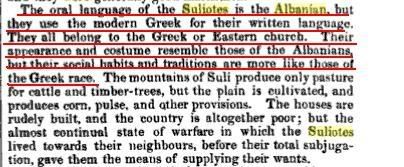Many Albanian nobles came to pay homage to His Excellency and brought him many castrated sheep, calves, hares, chickens and ducks, loads of biscuits, white bread, casks of wine of various kinds, and great quantities of salted fish. They showed signs of great affection for the Serene Lords of Venice under whose dominion they had once lived. When the horses were made ready, we set off from this town, accompanied by the said adjutant, the voivods and the four janissaries. We rode over a fair plain that stretches for 22 miles and arrived at the foot of the mountains through which we were to travel for several days. As it was late, we raised our tents to spend the night there. In the meantime, the adjutant sent the voivod to the nearest settlement to bring back a number of men who would guard us on our way. Thus, at midnight, we were presented with two hundred Albanians, inhabitants of a mountainous region called the Upper Black Mountains [Karadaku i Shkupit / Skopska Crnagora], where because of the height of the mountains, they never see the sun. In the mountains, we could hear the drum that was being beaten to inform the inhabitants that a large group of men was passing through. The man beating the drum looked like a bird to us. These people are dark-skinned. Their heads and beards were shaven, except for their moustaches. Their shirts were black with filth and they were very poorly dressed. They looked like men from hell – savage and frightening in appearance. They carried wooden bows and arrows next to their rusty swords, with wooden sheathes. On their heads, they wore caps like red berets, all greasy and ugly, and when they clambered down their mountains, they gave out cries that seemed not to be human but rather like the raging of a bull. The women, dark-skinned, too, were strong and healthy-looking, more so than the men. They wore three chains of aspers as necklaces and bracelets. These aspers, silver coins, are worth sixty to a sequin. These women brought food to our tents. There were so many women that it looked like market day. They were Christians. Accompanied by these Albanians, we rode for fourteen days through the mountains called the Black Mountains of Skopje.


